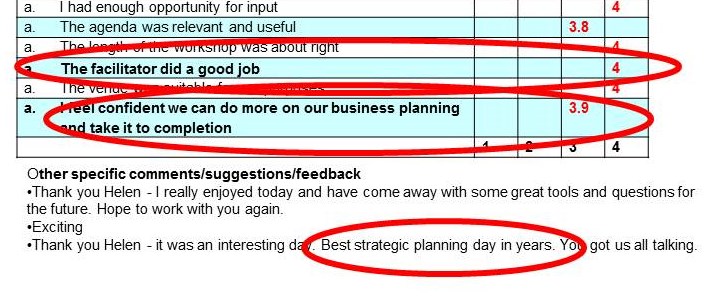Following on from our reflections about The Dream Client, it seemed only fair to consider what the dream consultant looks like. When we first set up 99 Consulting in 2006 we thought hard about what we liked and didn’t like in consultants we had hired in previous jobs. We were pretty clear that we didn’t want to be a consulting operation that sent senior people to tout for the work then task juniors to do it, that failed to listen to what our clients wanted or that handed in shoddy half-formed stuff as if it was the finished product. We also didn’t want to be all glitz and no substance.
We know we’re not perfect, but here are some things we aspire to, and that we suggest our clients look for whether they’re hiring us or someone else:
- Eyes on the prize! The consultant should share the client’s focus on a valuable and useful end result – avoid those jaded types that seem more interested in the finish line and sending that final invoice.
- Transparent: The consultant’s people doing the hands on work should be those who were named in the proposal – the client should be confident that the right skills and experience are deployed appropriately.
- On-side: The client should be confident that the consultant is working for their benefit. A good one should pretty quickly be able to adapt so that the work is a good fit with your language, your culture, your context, while retaining independence and able to offer objective findings.
- Frank, fearless, fair and well-founded: While a good consultant may not always have good news to report, they should be able to back up any claims with evidence and a rationale. No need to ‘trust the expert’. The good news must be backed with evidence too – or you may find yourself unable to use the results more widely.
- Communicative: The client needs to be able to contact the consultant easily, know what stage of the work they are up to, and feel respected by the consultant’s communication with them. The client should feel it is easy to prompt more, or less, communication if necessary.
- On time: Consultants should meet their deadlines, so long as the client hasn’t changed scope of work or delayed timelines with slow approvals etc.
- Top notch: The client should receive high quality work. We’ve seen clients accept poor work (not from us of course), mainly because the person signing off didn’t have the relevant expertise, so they didn’t know what was flawed in work they were presented with. Sometimes it’s because they’ve given up – they don’t think the consultant can do any better.
- Ready to say no to work that’s outside their experience – consultants should know their limitations and be prepared to refer clients to someone else for work that’s beyond their expertise.
- Appropriately challenging – the consultant shouldn’t just put your ideas and words into a report with their name on it – they should make your ideas better or prove that they are true, or alternatively show you why they may not work. Responsive: if you don’t want the consultant’s standard off-the-shelf way of doing something then you shouldn’t accept it. We’ve seen consultants impose their pet methodology, tool or process on clients even when it’s not actually relevant.

Even dream clients and consultants sometimes drop the ball. Unintended communication failings, lack of time to progress the consultant’s project, organisational change that swamps the work – all these things and more can derail even the best planned work. The best ways to pick up the pieces are ….the topic of a future blog!
